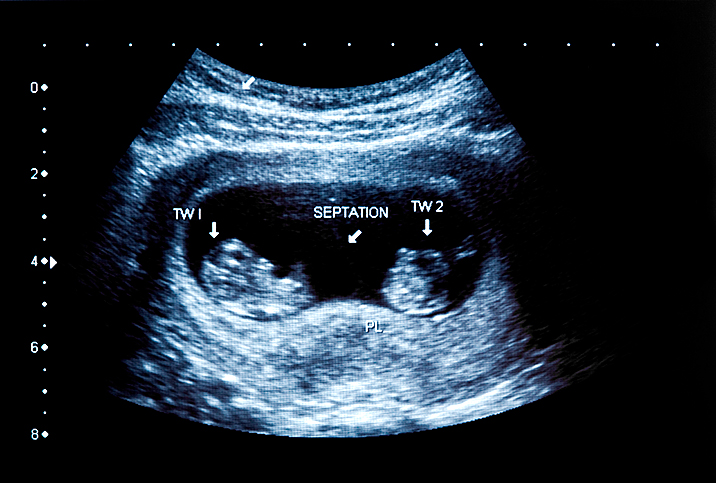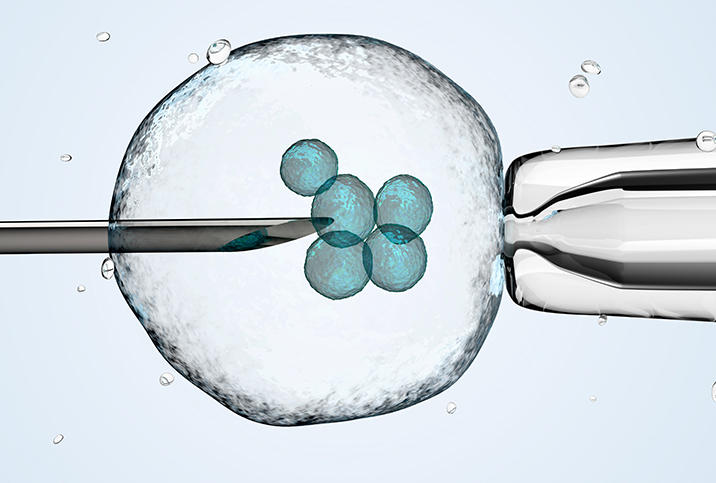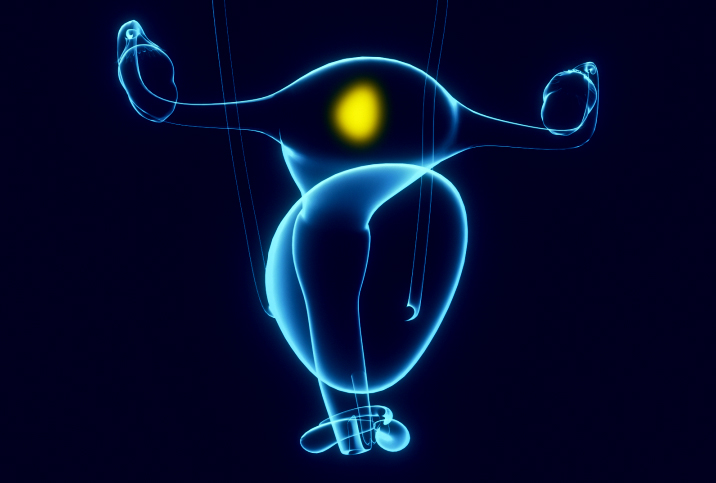Vanishing Twin Syndrome Is More Common Than You'd Think

Twin pregnancies are fairly rare occurrences—multiples occur in only about 3 out of every 100 births—but within twin pregnancies, a phenomenon known as Vanishing Twin Syndrome is fairly common.
Vanishing Twin Syndrome is when one embryo or fetus dies or is reabsorbed (hence: the "vanishing"). This can occur in twin pregnancies and with multiples. In fact, it is more common with multiples.
According to StatPearls, Vanishing Twin Syndrome (VTS) occurs in as many as half of pregnancies with three or more gestational sacs, in 36 percent of twin pregnancies and in 20 percent to 30 percent of pregnancies that have been achieved with assistive reproduction.
As you can imagine, dealing with Vanishing Twin Syndrome can be an incredibly challenging situation to navigate for a parent or parents-to-be. On one hand, they may be grieving a loss, and on the other, cherishing the continuing pregnancy.
It's a tragedy that deserves to be talked about and understood.
Unwelcome surprise
Crystal Murphy, M.S., CNM, APRN, explained that, unfortunately, there really isn't a way to predict whether Vanishing Twin Syndrome will happen—instead, it becomes apparent when a follow-up ultrasound reveals that one of the previously detected embryonic sacs of the pregnancy has gone missing.
"Initially, on ultrasound we see two embryonic sacs," said Murphy, who works as a midwife at Tru Birth Center in Lakewood, New Jersey. "Then, when you go back at the next ultrasound, there is no longer two of them—it's down to a single pregnancy."
Robert Atlas, M.D., chair of the Department of Obstetrics and Gynecology at Mercy Medical Center in Baltimore, Maryland, added that one hallmark characteristic of Vanishing Twin Syndrome is it tends to present itself very early on in the pregnancy. Typically, it only happens in the first trimester.
Murphy noted in some cases, the advent of technology and early ultrasounds means some women and couples are privy to knowledge that, in years past, they never would have even known.
Pregnancy care, even as recently as a decade ago, included only a routine ultrasound at 20 weeks, when evidence of the "vanishing" twin would have been far gone and the mother would have no idea she'd been pregnant with twins. Now, early ultrasounds provide a much more detailed picture of early pregnancy.
"Technology has come so far that we can see things really, really early," Murphy said. "And because we're able to see things so early, you can see that there's now two sacs or more than two sacs. And then when you go back and look the next time, one of those may have dissolved."
Additionally, Murphy pointed out it's thought VTS may be more common because of the increase in reproductive assistant technologies, like in vitro fertilization (IVF), because typically, more than one fertilized embryo at a time is implanted in order to increase the chances of a successful pregnancy.
What causes Vanishing Twin Syndrome?
While there isn't one known cause for VTS, there are some risk factors associated with the condition:
- Maternal age over 30
- Assisted reproductive techniques, such as IVF
- History of multiple gestations
- Placenta disorders
- Chromosomal abnormalities
There isn't a way to prevent VTS from occurring. There is some evidence the rise of hCG (the pregnancy hormone) is somewhat slower in pregnancies that will eventually end with VTS as compared to twin pregnancies where both twins survive. However, even if that subtle change is detected by a doctor, there is no treatment for the condition.
In rare cases, supplemental progesterone treatment might be tried, but usually, the pregnant person will simply be monitored for any complications. Typically, no additional steps are needed—the embryonic sac and any tissue inside is simply reabsorbed into the mother's body.
In some situations, the pregnant person may notice some bleeding—similar to the start of a miscarriage—but in most cases, Atlas said, there are no outward signs at all.
The only bright spot in VTS is the other twin typically does not suffer any issues as a result of the vanishing twin; the pregnancy can continue on without any additional risk or issues to the surviving twin. Atlas noted in some very rare cases, if the twins shared a placenta, there may be some affected development in the surviving fetus, but that is an incredibly rare occurrence. Additionally, there is no increased risk to any future pregnancies either.
Murphy noted this is because, essentially, VTS can be thought of as a miscarriage that just happened to occur while being pregnant with twins or multiples. Most miscarriages are the result of a chromosomal abnormality—meaning there's nothing you can do to prevent or stop it from happening, because there's a genetic abnormality that's incompatible with life—and that's most likely what's happening in the twin that "vanishes."
"What we would anticipate is that there's probably some sort of chromosomal defect with that twin that has dissolved," Murphy added. "It was never going to be a viable pregnancy. If that pregnancy had developed by itself, it probably would have miscarried on its own and you would never ever have known…but then you had two of them, so the second one was sustainable."
"Typically, VTS is something that most likely does not reoccur unless the mother has evidence of a chromosomal issue herself," Atlas added.
Gone, but not forgotten
Although VTS may, understandably so, be a very difficult experience to go through, both Atlas and Murphy described how the condition is also a very individual one. Depending on how soon the parent or parents-to-be found out about the twins, how early the loss occurred, and how they personally felt about having twins or how going from a high-risk pregnancy to a "normal" pregnancy affected them, there could be a wide range of emotions—and sometimes, even conflicting and coinciding ones.
For instance, they noted that while some parents may experience grief and sadness over the loss of one twin, others might experience relief. And still others might have a mixture of both emotions at the same time. "You kind of have a grieving process for the one that you've lost, and you have the joy and excitement of the one that is there," Murphy described.
She added that the difficult emotions may not even hit until much later in the pregnancy, or even after birth. "A lot of the time, it's so early that they haven't even really wrapped their brain around that it's there," she pointed out.
Both Murphy and Atlas noted there is no "right" or "wrong" way to feel if you experience VTS, and every parent and pregnancy will be different. However, it's a good idea to ask your pregnancy care provider for resources, like a therapist or social worker to talk to, in case you need them.


















